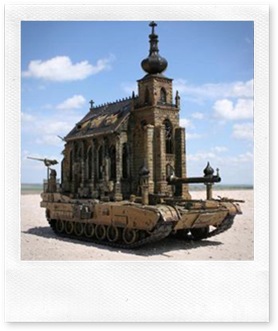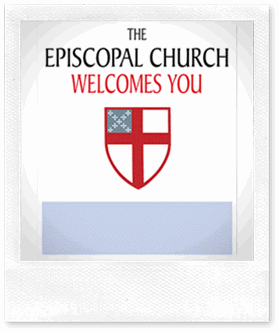
It is bigger, size wise, than any other building I’ll be visiting in my neighborhood during this project. I’ve been in this sanctuary before. It has a cruciform floor plan, meaning that the church from the air is shaped like a cross. From the inside this part of the roof is raised with a section of windows letting in natural light to warm the spectacular and polished room. It sends a message: God is big and you should be reverent.
I don’t think I’m very reverent.
There isn’t a lot of room in my life right now for ritual and routine. I’m pretty familiar with God. I talk to him without kneeling, making a sign, or memorizing prayers. They usually start out, “Hey Dad, it’s me Bob,” and then stay pretty conversational.
I respect Catholicism. It is part of my family heritage. I’ve collected some of the elements of worship that my grandparents owned that were helpful tools for them during their prayer times. I have books from some of the “desert fathers” whose writings about their pursuit of God inspire me. I really liked the last Pope and considered him a humble, caring man. I’d like to think well of the current Pope, but he looks too much like the Emperor from Star Wars for me to feel very comfortable about him.
I just finished reading Father Albert Cutié’s memoir, Dilemma: A Priest's Struggle with Faith and Love. He’s frank about his own journey, as well as what he has experienced as unhealthy and inconsistent practices in the Roman Catholic Church. (He is now a married, ordained, Episcopal Priest.) I know I’m not immune to the media’s representation of the sexual scandals that have plagued Catholicism. I seem to have more respect for nuns than I do priests. And though I view Dan Brown’s books as purely fictional, I do think the Catholic Church has real secrets that have been buried.
I participate with the Catholic Church. My wife regularly delivers boxes of food to their food pantry, as they have developed a great network of providing meals to the local poor. I pray in their small chapel as it is always open, is always quiet, and has people praying inside 24 hours a day, 365 days of the year. I have friends and neighbors that are Catholics that I respect their expression of faith and treasure their devotion.
I don’t feel part of the Catholic Church, regardless of my heritage. I know they have rules about what non-Catholics can and can’t do in a service. I’m not in a place in life to jump through the necessary hoops just so I can participate in the Eucharist with them. I find it daunting and the language foreign. I read an invitation to “experience the Joy of the Lord in the Catholic Church” on their website, but then it was followed by a daunting ladder of initiation.
RITE OF CHRISTIAN INITIATION OF ADULTS
Period of Evangelization and Precatechumenate
- This is a time for inquiry and introduction to Gospel values
Acceptance into the order of Catechumens
- This is the liturgical rite that marks the beginning of the catechumenate proper, as the precatechumens express and the Church accepts their intention to respond to God’s call to follow the way of Christ.
Period of the Catechumens
- This is the time for nurturing and growth of the catechumens’ faith and conversion to God.
Election or enrollment of names
- This is the liturgical rite by which the Church formally ratifies the catechumens’ readiness for the sacraments of initiation and the catechumens, now called the elect, express the will to receive these sacraments.
Period of purification and enlightenment
- This is the time period immediately preceding initiation into the Church.
Celebration of the Sacraments of Initiation
- This is the liturgical rite, usually part of the Easter vigil, by which the elect are initiated through baptism, confirmation and the Eucharist.
Period of post baptismal catechesis
- This is the time following the celebration of initiation, during which the newly initiated experience being fully part of the Christian community and participate with all the faithful in the Sunday Eucharistic celebration.
I’ll visit the Catholic Church in my neighborhood this weekend. But I’m afraid I’ll feel like I’m on the outside.





